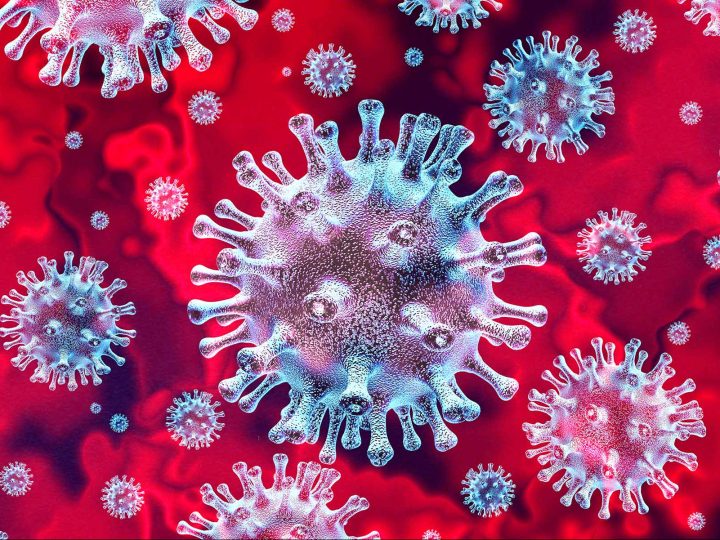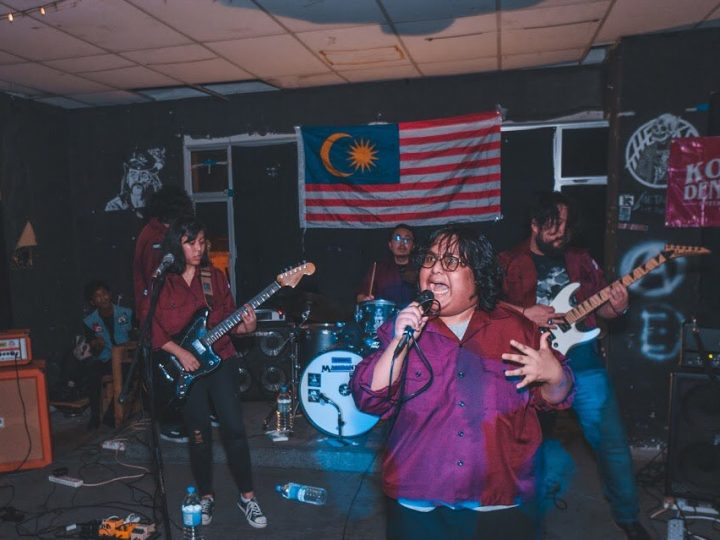Attacked with Rocks & Bleach! Healthcare Front-liners Face Danger & Discrimination Outside Hospitals
 Thirsty for JUICE content? Quench your cravings on our Instagram, TikTok and WhatsApp
Thirsty for JUICE content? Quench your cravings on our Instagram, TikTok and WhatsApp
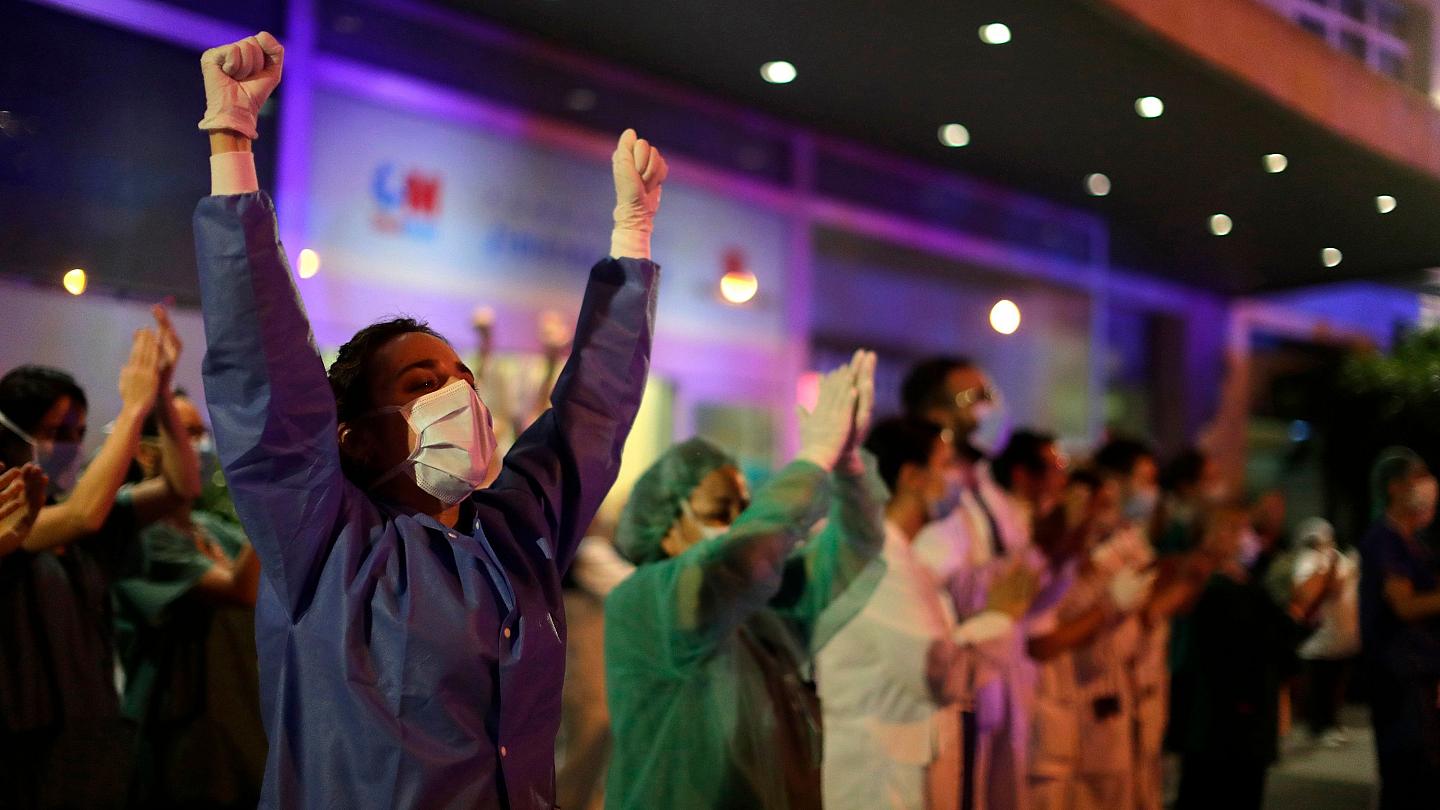
While most citizens of the world are extremely grateful to front-liners, even dedicating songs, murals, drawings and applause by their balcony to show gratitude, some are not as kind.
It appears that being a healthcare worker during Covid-19 has two sides and the other is bleak and life-threatening. I’m not talking about risking their lives every day to treat us from the disease, but in fact, I’m talking about how even when they leave their respective hospitals, they are still in harm’s way due to discrimination and assault from fellow citizens.
Here’s a snapshot of the grievous problems front-liners face across the world…
Philippines
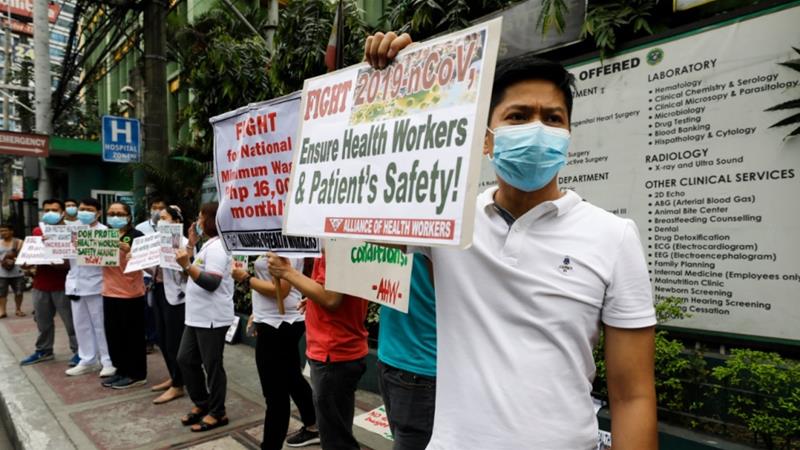
According to Al-Jazeera, many healthcare workers were left homeless after the boom of Covid-19 in the Philippines.
Joaquin Sapul, Jr, a nurse and chief of patient services at one of the hospitals that treats the viral disease, recounted his experiences with his staff members. He said,
“At least six nurses were messaging and calling me, crying. Their landlords were evicting them. Some were being prevented from leaving their homes by their village captains.”
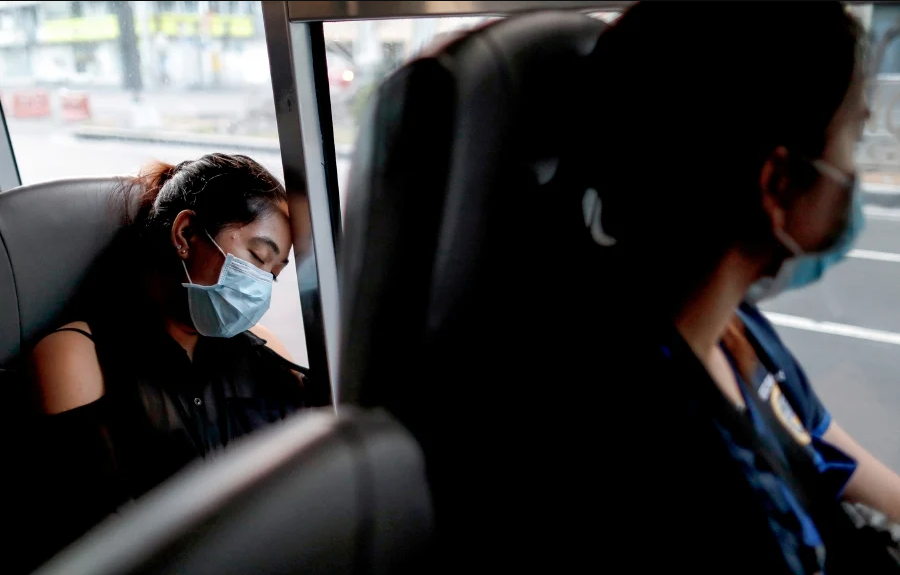
Soon after, he himself was asked to leave his residence by his landlord, in fear that he would infect the other inhabitants. Despite understanding the growing concern of the people around him, he said that it “still hurt” how he was treated badly after a long day’s work at the hospital.
Sapul said it was shocking that the hysteria could make his nation distrust him so easily even when he was risking his own life to protect them.

To further paint the picture of discrimination, street stalls began erecting signs that claimed they do not serve health care workers which affected many hospital staff, especially janitors who couldn’t afford to go anywhere else.
Discrimination is prevalent amongst front-liners, but so is assault.
In Cebu, two men on a motorcycle splashed chlorine on a nurse as he was heading home. The effects of chlorine includes burning sensations, redness, blisters, irritation in throat and eyes and also severe coughing.

In Sultan Kudarat, five men took it a step further by throwing bleach at another nurse who was crossing the street, on the way to work. Ever since these attacks, police monitoring has been tightened to ensure the safety of the workers. However, even the government shows a lack of support towards front-liners.
“Healthcare workers are exhausted and frustrated by the lack of support from the government in providing them even basic protective gear. If we do not put a stop to this harassment, nurses may resign,” said Reigner Antiquera, president of Alliance of Young Nurse Leaders and Advocates.
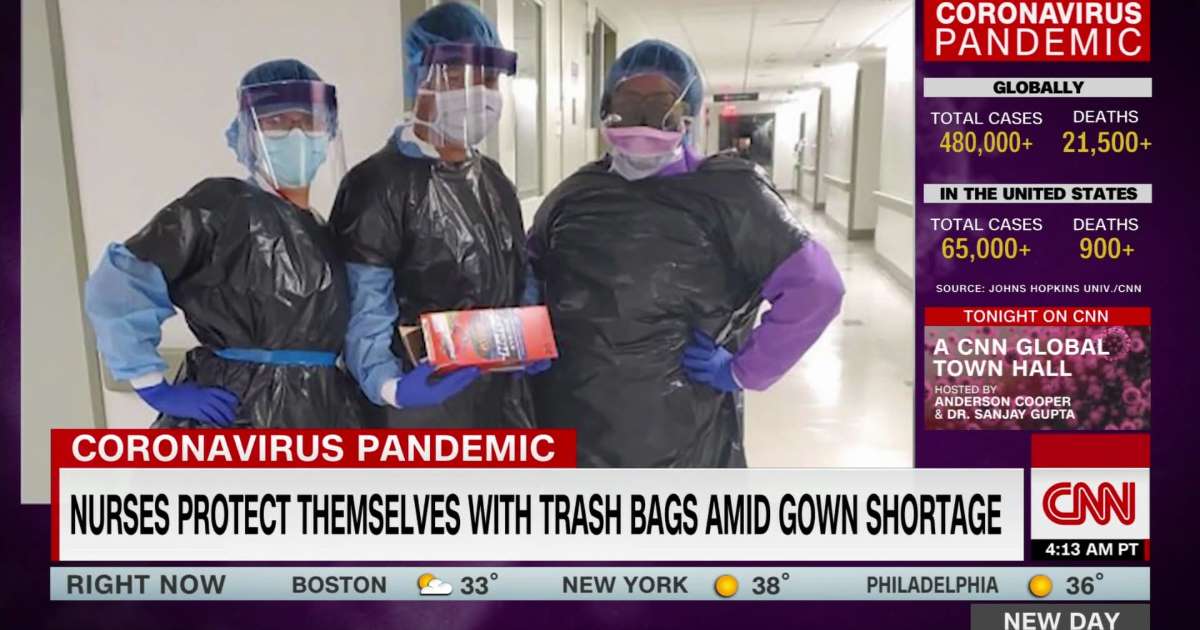
This was further illustrated when photos of nurses using rubbish bags and motorcycle helmets began to surface on the internet which prompted a call-to-action for people to donate and fund proper protective gear. If that sounds familiar, it’s because the same thing happened to some of Malaysia’s healthcare front-liners.
A nurse, who had been working for over 20 years, shared her dejection by saying,
“We are at the front lines, taking care of patients and it is us who they want to hurt and shame? What if we decided to mount a mass boycott, what would they do without us?”
India
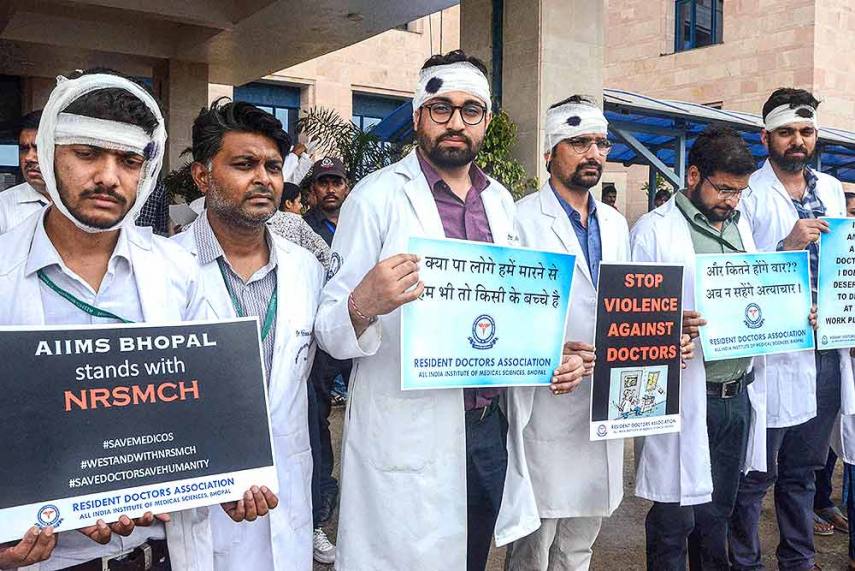
According to BBC, doctors and nurses have been spat at and verbally abused in their hospitals by their own patients as well as bystanders when they’re walking home from work. Most of them have been alienated by their own neighbourhoods as if they themselves were a disease, some even contemplating moving houses.
In Indore, a group of front-liners were brutally attacked by rocks when they were tasked to check on a woman in the area who was suspected of having Covid-19. The video below shows them scurrying away in their uniforms, finding shelter from the assault.
Indore has 76% of MP’s #COVID patients, but after Ranipura again locals attacked health officials @ChouhanShivraj @DGP_MP @ndtvindia #COVID19Pandemic #CoronaKoDhona #COVIDIOTS pic.twitter.com/GPDMqEfBaM
— Anurag Dwary (@Anurag_Dwary) April 2, 2020
Despite the disrespect, one of the doctors in the video said the attack “won’t deter me from doing my duty”.
Furthermore, after a recent spike in cases, the patients at a hospital in Indore began showing utter disregard for autonomy and personal space when they began walking around naked and harassing female nurses and doctors. A doctor who was at the hospital told BBC, “They kept asking for cigarettes and tobacco.”
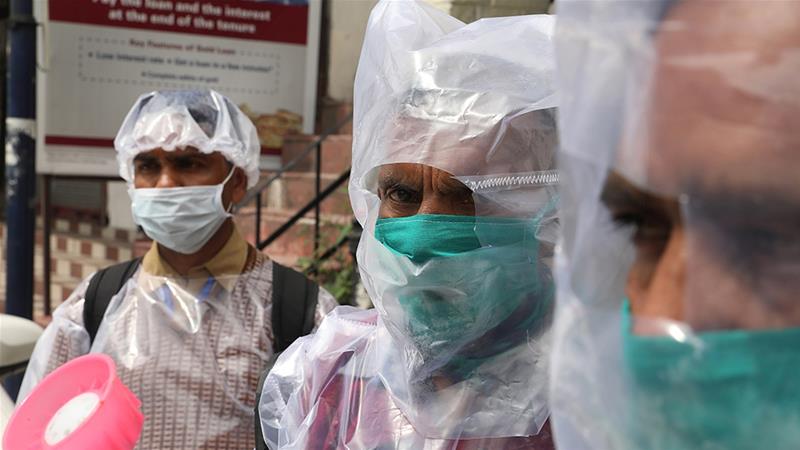
Many have expressed sadness over the recent backlash. One even said,
“We are following all safety protocols. We are not meeting even our families and that is stressful. But seeing this open discrimination just breaks my heart. But we will go on because there is really no other option.”
Australia
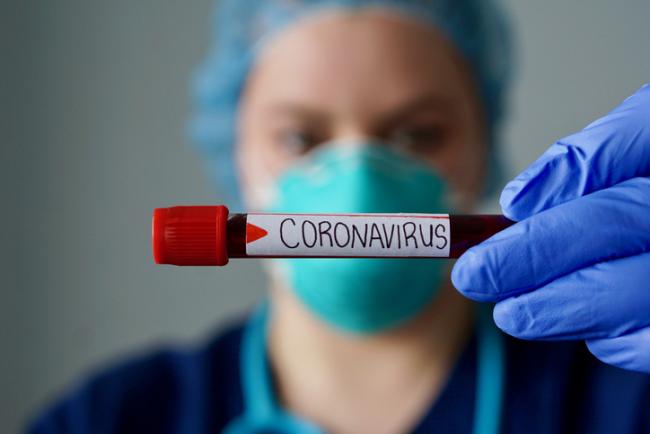
The situation in New South Wales has become so dire that medical practitioners have been advised not to wear their uniforms outside, in fear of assault. Quick to recognise the intolerable behaviour, NSW Health Minister said in a press conference, “It’s not Australian, it’s not the way Aussies behave.”
Nurses in particular have been subject to assault and harassment in public. One nurse was assaulted while boarding a train while another was screamed at as she picked up her dinner at a restaurant.
Similar to Philippines, healthcare workers are also denied service in Australia, especially at places such as gas stations, supermarkets and cafes, all because they were wearing their uniforms.

At a McDonald’s in Penrith, a front-liner was verbally abused at check-out after showing their ID. The driver behind her yelled that she should not be “spreading the virus” despite her social distancing in her own car. It was also reported by ABC News that “increasingly anxious patients” are deliberately spitting and coughing at practitioners during Covid-19 screenings.
The NSW Health Minister noted that those who abuse front-liners are the minority but he is still disturbed that this kind of behaviour exists at all. He said,
“I think every right-minded member of our community would be appalled that our doctors and nurses are being targets for these people, who don’t seem to get it.”
Mexico
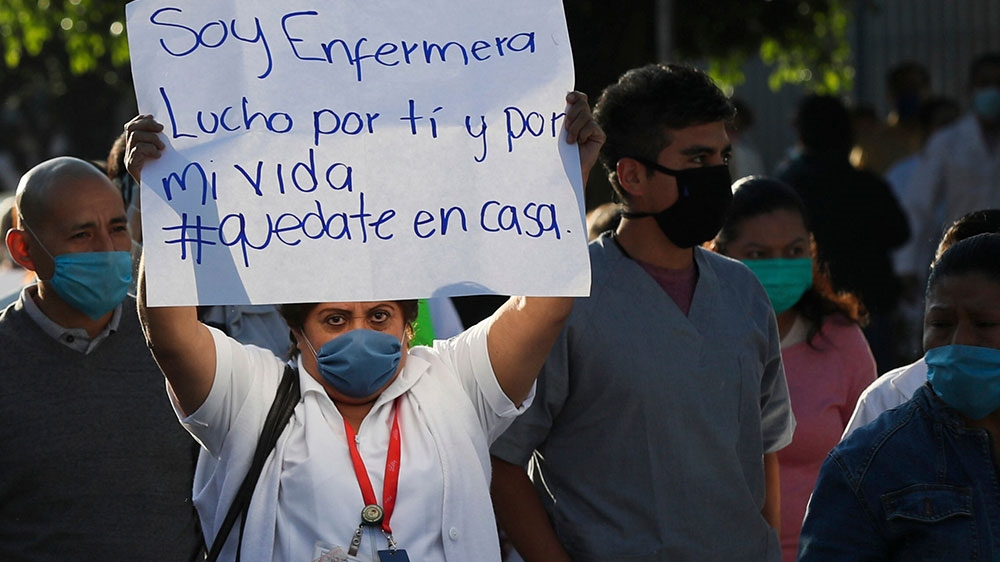
The Guardian reported that there is an alarming proliferation of assault within Mexico towards healthcare workers.
In Guadalajara, a nurse became a victim of a bleach attack. She said, she felt something wet on her face before her vision began to cloud. That was when she recognised the foul and overpowering odour as bleach. She was wearing her uniform when it happened, and now has permanent burns on her skin.
Forlorn, the nurse said,
“I have worn my nurse’s uniform for 27 years with great pride – as do doctors. But today we are taking off our uniforms because we don’t want to be injured.”

In another incident, a nurse in San Louis Potosi had to defend herself against a hysterical attacker all because she had accidentally left her cup of coffee at the cafe. “She hit me in the face, and I had no choice but to defend myself. We ended up on the pavement, me trying to defend myself because I was proudly wearing my white uniform. I fractured two fingers on my right hand,” she recounted.
When our heroes are being attacked…

Subjected to physical and verbal assault, discrimination, homelessness and ultimately emotional turmoil, front-liners around the world are getting unfair treatment for their hard work in protecting and treating their nations from Covid-19.
It’s unjust how the world is repaying those who work tirelessly to ensure our health and safety and this behaviour can only be attributed to wrongful displacement of anger and lack of education.
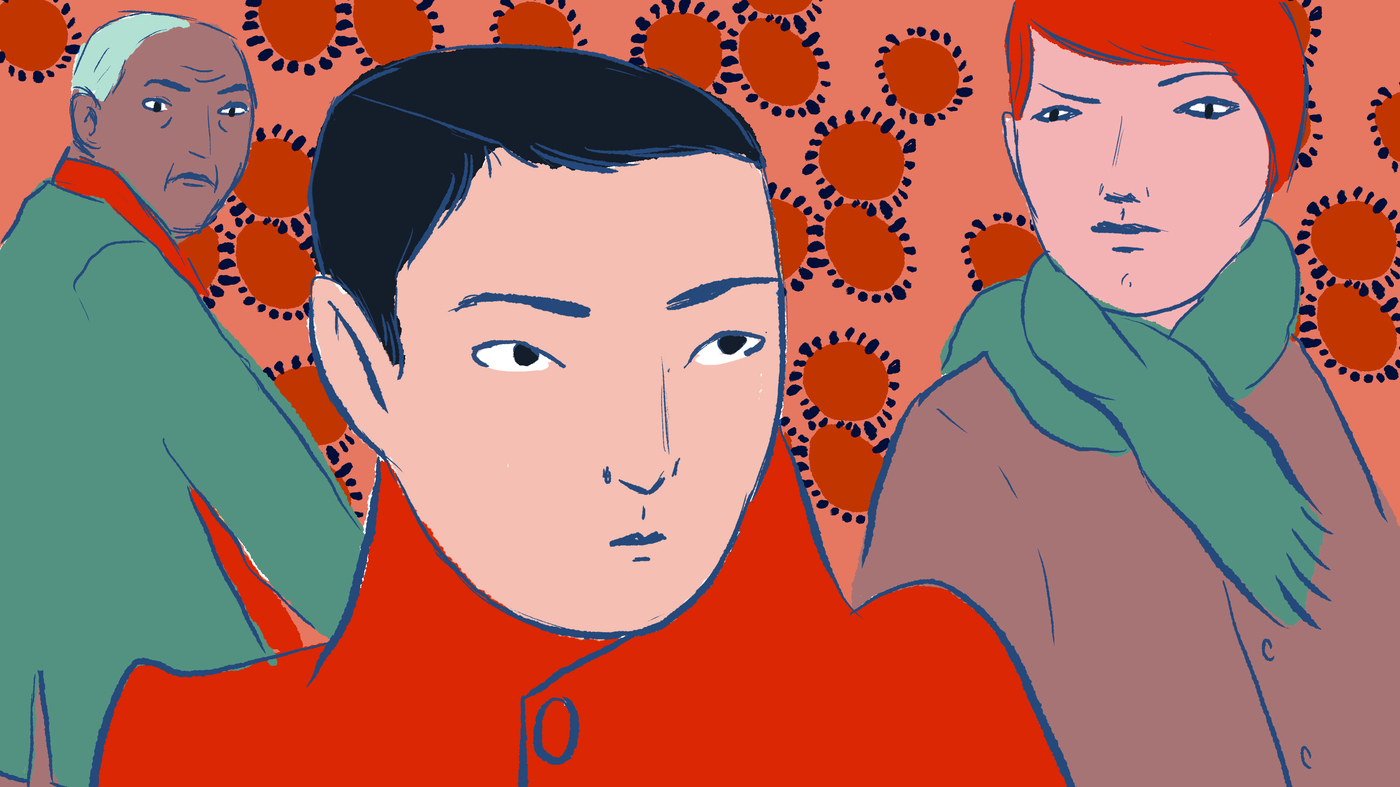
By sharpening our fear and allowing it to hurt others, it can only lead to hysteria which is useless in the scope of a global pandemic. Of course, we’ve seen this kind of behaviour before when Ebola led to the xenophobia against Africans and discrimination against healthcare workers. Now, we’re witnessing it again.
We should learn from the past and realise that the only way to we can beat this disease is by staying united and respecting those at the front-lines. Maintain social distancing, better your personal hygiene and above all, treat others with the same respect you would your own family and loved ones.
For more features and news, choose JUICE.

 Get Audio+
Get Audio+ Hot FM
Hot FM Kool 101
Kool 101 Eight FM
Eight FM Fly FM
Fly FM Molek FM
Molek FM